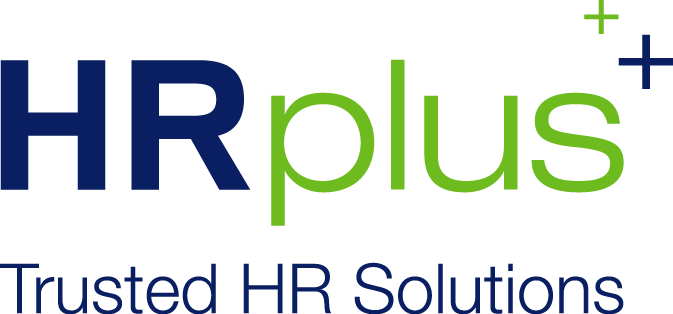
News & Updates
HRplus Insights for 2020
As we bring in a new decade, employment practices are expected to change.
The list below is a snapshot of what is already being implemented and what our consultants believe will be the key changes to employment practices in 2020.
New Legislation already in place
Fair Work Information Statement
The mandatory Fair Work Information statement has recently been updated.
Download it here
Modern Awards
The Fair Work Commission is finally rolling out updates to Modern Awards, with the first group of updated awards due to be released in February. HRplus will keep existing clients informed of relevant updates pertaining to them.
Superannuation
From 1st January 2020, employers are required to pay superannuation on total salary in cases where a proportion of salary has been sacrificed (set aside) as additional superannuation payments.
Annualised Salaries
From 1st March 2020, changes to existing award annualised salary provisions will apply requiring additional documentation of annualised salary payment arrangements. We believe these changes will soon become the ‘benchmark’ for annualised salary arrangements for all organisations.
Paid Parental Leave
From 1st January 2020, amendments to the Paid Parental Leave (PPL) scheme 'work test' will apply. An explanation of work test requirements can be found here
Whistleblower Policy
Public companies, large proprietary companies and regulated superannuation entities were required to implement a whistleblower policy by 1st January this year. HRplus has developed a sample policy for clients, so please let us know if you require this.
Ongoing actions to keep in mind
Qualifying Period
The courts appear to be placing a greater onus on employers to justify decisions to terminate employees within the 6 month qualifying period under the Fair Work Act. Please contact us if you are considering terminating a new permanent employee within 6 months.
Mixed Duties
As a result of recent case law, more employers may be tempted to explore options to engage workers on multiple employment contracts. Contact us if you are considering this.
Employer-initiated terminations
We are seeing greater scrutinisation of employer-initiated terminations in the courts including substantial compensation payments being awarded to employees, despite the termination in some cases being deemed fair and reasonable.
More employees seem to be taking the litigation option when their employment is terminated. This is not surprising given that 75-80% unfair dismissal and adverse action claims lodged result in financial settlement to the applicant. A contributing factor is that many employers find that privately settling a claim through a facilitated telephone negotiation process offered by the FWC, is preferable to the stresses and potential legal costs of the claim progressing to court-based arbitration.
FWO Prosecutions
The Fair Work Ombudsman will continue investigations of employers who have been specifically named by past and current employees for breaching employment laws. (Employees are now able to name employers through anonymous on-line reporting to the FWO). The Federal government continues to state that it will introduce a Bill aimed at introducing criminal sanctions for serious worker exploitation and wage theft.
Public Holidays
Public holidays are becoming increasingly complex, with part-day, substituted and special public holidays applying in many states. A list of 2020 state holidays can be found here.
Modern Slavery Act
The Modern Slavery Act 2018 (Cth), introduced in January 2019, requires employers with an annual consolidated revenue of more than $100 million, to report annually on the risks of modern slavery in their operations and supply chains. Employers are required to lodge mandatory modern slavery reports to cover FY 2019/20 by the end of this year.
We will keep our clients informed as all these changes are rolled out over the next few months. Please don't hesitate to contact us for any clarification and assistance with implementing new practices.
Some HRplus Predictions
Personal Leave
We hope that 2020 will see a High Court decision that will restore sense to the calculation of personal leave days which were disrupted by the 2019 ‘Mondalez decision’. This link explains the decision.
Casuals
We hope that there will be further case law to clarify the confusion surrounding the ‘Skene’ and ‘Birner’ decisions that provided conflicting interpretations defining casual employment.
Workplace Manslaughter
Employers found to be guilty of negligence resulting in a workplace death may be subject to hefty criminal charges as OHS/WHS legislation is introduced and strengthened across several States.
Freedom of Speech in Social Media
An increasing number of recent cases have considered employee rights to speak freely (i.e. negatively or in a contradictory manner to their employer), through social media avenues. We expect this developing area of case law will continue in 2020.
Class Actions
Lawyers are predicting that class action litigation will rise against employers in response to workplace breaches and decisions such as the ‘Skene’ decision which awards significant payments to workers.
Religious Discrimination
In 2020, Federal Parliament will be discussing the Religious Discrimination Bill which aims to provide defined religious organisations to preference the employment of those who share their faith. The proposed Bill seeks to extend coverage to include religious charities, hospitals, aged care facilities and accommodation providers.
Enterprise Bargaining
Employers will be relieved that the Federal Government is considering changes to enterprise bargaining processes designed to achieve quicker and less complex agreement approval.
NOTE: As this is new legislation, there is the possibility that it could be appealed.
Contact us to assist you with implementing multi-hire arrangements for any of your qualifying employees, or if you have any questions regarding HR matters in your company.

